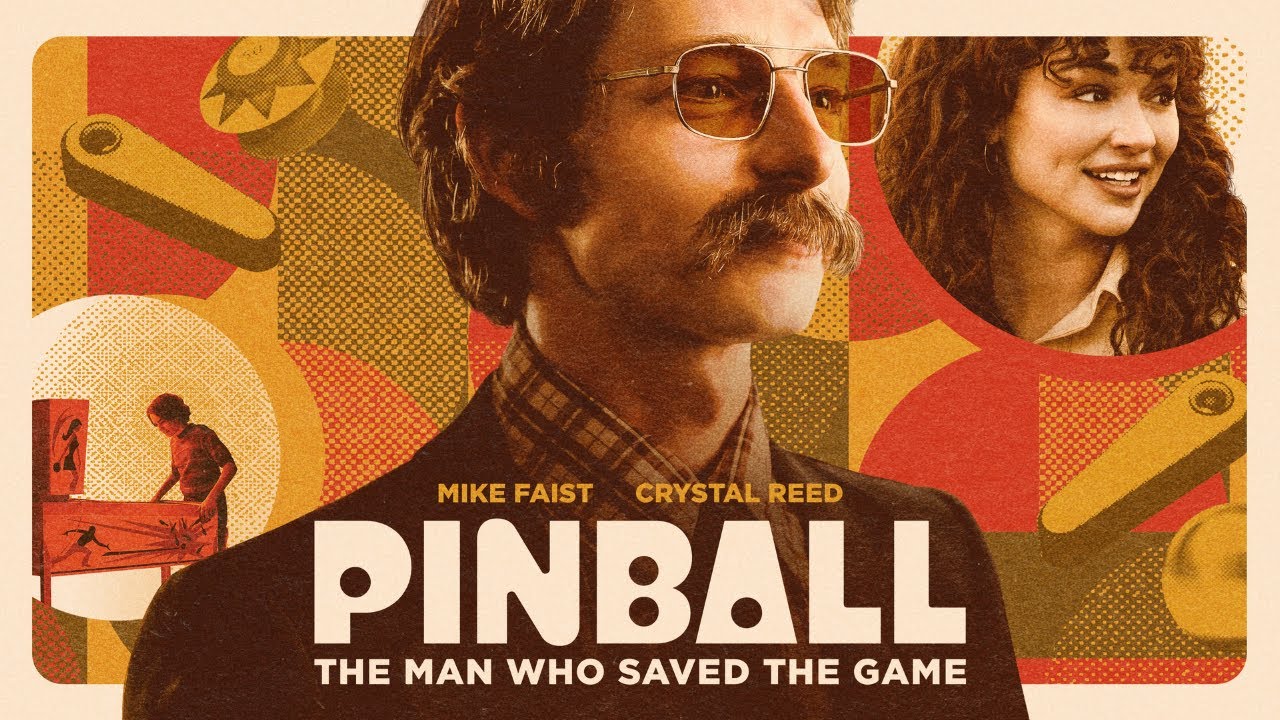
When I was in college, I became enamored of pinball machines — especially the one in the basement of my dorm. It was called The Wiggler, and I spent so much time playing it and getting to know its idiosyncrasies that I often earned enough extra balls to keep a game going for quite a long time. I even won a bet with a friend who challenged me to play while sitting backwards on the glass looking down at only the bottom half of the playing surface while working its flippers.
My fascination with pinball diminished as I started spending more and more time at WUSB, the college radio station. But I still remember my disappointment when I went down there one night to find the vendor had replaced The Wiggler with a foosball table.
That memory came back to me as I watched “Pinball: The Man Who Saved The Game.” It’s about Roger Sharpe, who (like me) discovered his love of pinball in college in the early seventies. After graduating from the University of Wisconsin with a marketing degree, he eventually moved to New York, got a job as a writer for GQ, and discovered that pinball was illegal in the city — and had been for more than three decades because politicians considered it gambling.
He wrote about the ban for the magazine, then began research for a book about the history of pinball, and got to know some of the men who had created, designed, and built the game into a successful business. In 1976, higher-ups in the industry convinced Sharpe to display his expertise and acumen before the Manhattan City Council to prove to them that pinball was a game of skill, not chance, and thus not covered by the gambling laws. His demonstration convinced them to repeal the legislation.
In “Pinball: The Man Who Saved The Game,” Sharpe is played by Mike Faist, who was so good as Riff, the leader of the Jets, in Steven Spielberg’s remake of “West Side Story.” I was so impressed by Faist’s performance I was sure it would catapult him into other major movies. I did not expect that his next role would be as a pinball wizard.
Faist is really engaging as Sharpe, complete with a hangdog mustache so long it covers his bottom lip. But writer/directors Austin and Meredith Bragg — in their big-screen debut — also use a clever framing device to tell the story. They have the underrated Dennis Boutsikaris playing Roger Sharpe in the present as he narrates his own story. At times, he even interrupts the proceedings to correct something the filmmakers are getting wrong or is hurried up by them when he gets bogged down in Sharpe’s love story with girlfriend Ellen, played by the wonderful Crystal Reed.
The Bragg brothers also cast some reliable character actors with instantly recognizable faces — even if you don’t know their names — including Michael Kostroff, Todd Susman, and the always reliable Kenneth Tigar. The entire ensemble and the Braggs’ clever storytelling make the movie an absolute joy.
Roger Sharpe said, “Life is defined by risks: those you take and those you don’t. The ball is gonna drain no matter what, so find what you want and take a shot.” That quote can be applied to making indie movies like “Pinball: The Man Who Saved The Game.” It’s too bad that, other than a slew of film festivals, it hasn’t gotten a wider release in arthouses. But it is now streaming on Hulu and Hoopla and for a few bucks on other platforms.
I recommend it — even if you’ve never put a quarter in a pinball machine or sat on top of one while playing backwards — with a rating of 9 out of 10. I’m adding it to my Movies You Might Not Know list.
Previously on Harris Online…
